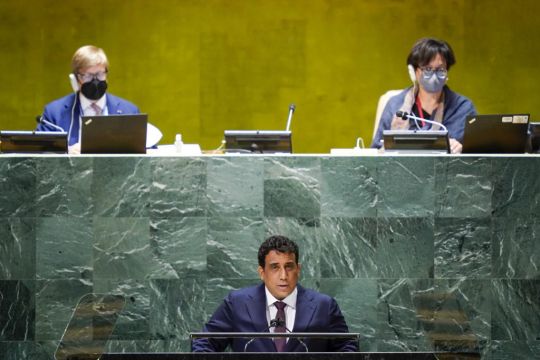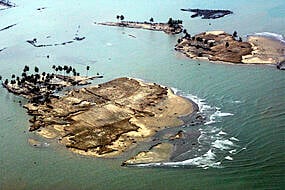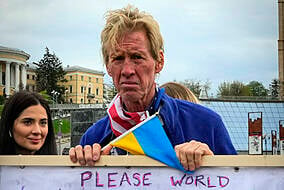After a no-confidence vote in Libya’s transitional government this week added to uncertainty ahead of key elections in December, one of its leaders said the government would hold an international conference next month on trying to keep the political process on track.
Mohammad Younes Menfi, who chairs Libya’s three-member Presidential Council, announced the plan but gave few specifics at the UN General Assembly meeting of world leaders.
He said the conference would involve “relevant national bodies and institutions”, plus regional and international voices.
The aim: maintaining the political process, keeping “unified, consistent, coherent” international support, and conducting “safe, transparent, fair elections”, Mr Menfi said.
He did not give a location or exact date.
“Libya is at a critical juncture, indeed, a defining moment,” said Mr Menfi, a diplomat from the country’s east.
“We either succeed in the democratic transition by means of fair and free and transparent elections, the results of which are acceptable to all, then move towards a sustained stability and prosperity or we fail and relapse into division and armed conflict,” he said.

Libya has endured a decade of chaos since a Nato-backed uprising toppled longtime dictator Muammar Gaddafi.
In the aftermath, the oil-rich nation was split between a government in the east, backed by commander Khalifa Hifter, and a UN-supported administration in the capital of Tripoli.
Each side has also had the support of different regional powers, militias and mercenaries from countries such as Russia and Syria.
All mercenaries and foreign forces were supposed to withdraw after last October’s ceasefire agreement, but they remain in the country and Mr Menfi said this issue remains “a real challenge”.
The current transitional government replaced the two rival administrations and was intended to prepare the country for elections on December 24.
But Libyan politicians passed a vote of no confidence in the transitional government on Tuesday, adding to questions about the planned elections.
Still, the country’s prime minister Abdul Hamid Dbeibah said the government would keep pushing ahead.







